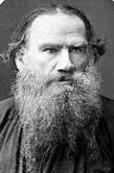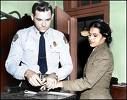







TLW's Pacifistscope™ (Pacifist Historyscope) |
By T.L. Winslow (TLW), the Historyscoper™ |
© Copyright by T.L. Winslow. All Rights Reserved. |
Original Pub. Date: Mar. 2, 2020. Last Update: May 10, 2020. |
Westerners are not only known as history ignoramuses, but double dumbass history ignoramuses when it comes to the history of Pacifism and Pacifists. Since I'm the one-and-only Historyscoper (tm), let me quickly bring you up to speed before you dive into my Master Historyscope.

In the 1870s wealthy Russian "War and Peace" novelist Count Leo (Lev) Nikolayevich Tolstoy (Tolstoi) (1828-1910) gets religion, esp. Jesus Christ's "Sermon on the Mount", becoming a Christian anarchist and pacifist, espousing the philosophy of nonviolent resistance, which makes fans of Mahatma Gandhi and Martin Luther King Jr.

Duh, war is a profitable industry too for international bankers? In 1909 future British Labour MP (1929-31) Sir Ralph Norman Angell (1872-1967) pub. the bestseller The Great Illusion (pub. as the pamphlet "Europe's Optical Illusion" this year, followed by a book next year that goes through 10 English language printings by 1913, and is trans. into the major Euro languages), arguing that another major internat. war is impossible because war has become so terrible, economies so economically interdependent, and govts. so rational, calling for an end to the arms race; "War has no longer the justification that it makes for the survival of the fittest; it involves the survival of the less fit. The idea that the struggle between nations is a part of the evolutionary law of man's advance involves a profound misreading of the biological analogy"; "How can modern life, with its overpowering proportion of industrial activities and its infinitesimal proportion of military, keep alive the instincts associated with war as against those developed by peace?"; even the Prussian Junker "becomes less of an energumen as he becomes more of a scientist"; Barbara Tuchman in "The Guns of August" points out that the Brits are reading this on the eve of WWI while the Germans are reading Friedrich von Bernhardi's 1912 "Germany and the Next War", which argues that war is part of the Darwinian Struggle for Existence, and is "a biological necessity"; in 1933 Angell pub. a rev. ed. of his book, claiming that economics won't prevent a world war but that it's a futile way for a nation to enrich itself, winning him the 1933 Nobel Peace Prize.

On Mar. 18, 1920 Mohandas K. "Mahatma" Gandhi (1869-1948) becomes the leader of the Indian Nat. Congress, and on Mar. 20 he recommends Satyagraha (Non-Cooperation), nonviolent disobedience against the British.




"Somewhere in the universe a gear in the machinery had shifted" (Eldridge Cleaver) as Rosa Parks and Martin Luther King Jr. arise to take on whitey in the Deep South, using whitey's network TV to get worldwide pressure on local conditions? On Dec. 1, 1955 (Thur.) (less than 100 days after the Emmett Tills affair) black seamstress (member of the NAACP since 1943) Rosa Louise McCauley Parks (1913-2005), who lives in the Cleveland Courts housing project parks her rosy butt and refuses to move to da back o' da bus in Montgomery, Ala. when it fills up and the bus driver James F. Blake (1912-2002) orders her to stand and let a white man sit; she is arrested at the next stop, charged with the misdemeanor of disobeying a bus driver's instructions, found guilty, and fined $14; NAACP pres. Edgar Nixon and employer Clifford Durr bail her out; her friends and neighbors distribute pamphlets calling for a 1-day boycott of all city transportation, which is a huge success as the 25K blacks in the city account for 75% of the bus passengers; black leaders step in and demand that blacks be treated equal with whites, and black bus drivers be hired; when they refuse, the Montgomery Bus Boycott, led by unknown 26-y.-o. Harvard-educated Dexter Avenue Baptist Church pastor Dr. Martin Luther King Jr. (1929-68) begins on Dec. 5, and lasts 381 days, almost bankrupting the city bus co. (ends Dec. 1956); Montgomery Mayor W.A. Gayle and the city commission ceremoniously join the local White Citizens' Council, and Gayle declares "We have pussyfooted around long enough... There seems to be a belief on the part of the Negroes that they have the white people hemmed in a corner and they are not going to give an inch until they can force the white people of the community to submit to their demands"; white families begin giving their cooks and handymen rides or pay their taxi fares, causing Gayle to accuse them of "fighting to destroy our social fabric just as much as the Negro radicals who are leading them"; in 1992 Parks says she didn't do it just because "my feet were hurting and I didn't know why I refused to stand up when they told me... the real reason of my not standing up was I felt that I had a right to be treated as any other passenger. We had endured that kind of treatment for too long". On Feb. 20, 1956 Rosa Parks along with 100 Montgomery, Ala. blacks are indicted for violating a local anti-boycott statute and booked at the police station, resulting in a famous booking photo which people mistake for the Dec. 1, 1955 bus arrest. On June 13, 1956 the U.S. District Court in Ala. rules in Browder v. Gayle that public bus segregation is unconstitutional. Alabama's stupidity causes segregation to be dealt a major blow? On Nov. 13, 1956 the U.S. Supreme Court upholds the Ala. District Court, ruling that segregation of buses and all public transportation is illegal, bringing the Montgomery Bus Boycott to a victorious end on Dec. 21 when the city of Montgomery actually obeys the law; Martin Luther King Jr. (1929-68), who had been arrested again in Nov. for running a business enterprise without a franchise (organizing a 200-vehicle carpool) is freed, saying, "We have been going to the back of the bus for so long that there is danger that we will instinctively go straight back there again and perpetuate segregation"; "I would be terribly disappointed if any of you go back to the buses bragging, 'We, the Negroes, won a victory over the white people'. If you do, our struggle will be lost all over the South. Go back with humility and meekness"; he then rides the bus himself, paying 15 cents, up 5 cents from the year before, and takes a front seat, at the end commenting, "It was a great ride"; on Dec. 21 a UPI photographer takes a staged picture of Rosa Parks and UPI reporter Nicholas C. Chriss (1928-90) sitting at the front of the bus in downtown Montgomery; the photo is later used as a poster, and people mistakenly believe the reporter is an Alabama segregationist because of the way he looks away from her, and mistakenly believe it was taken during the original incident, which was on an overcrowded bus; MLK Jr. and others take similar staged photos.